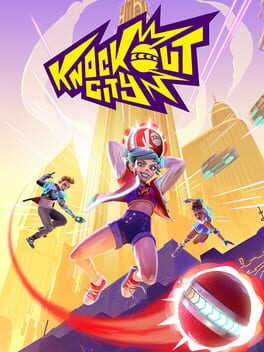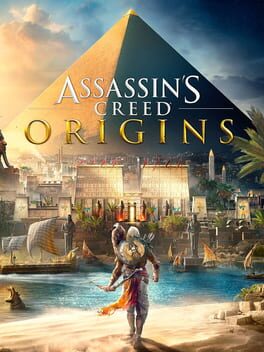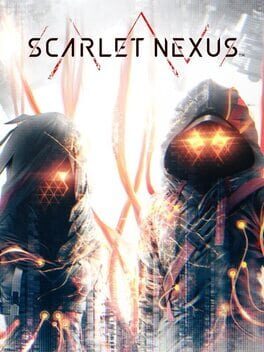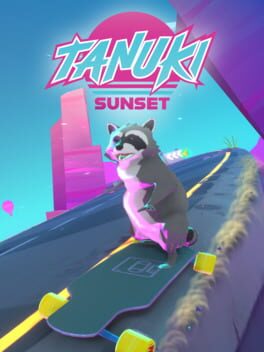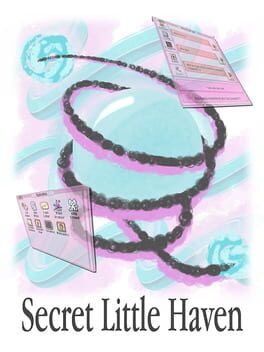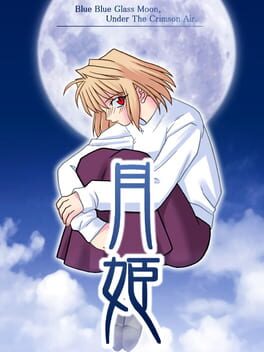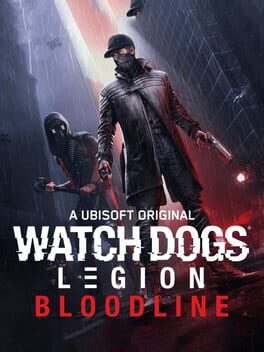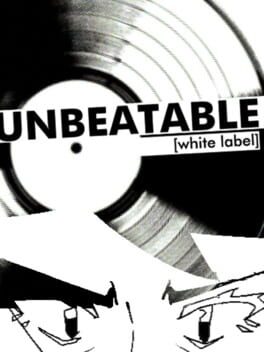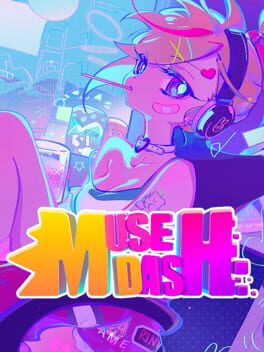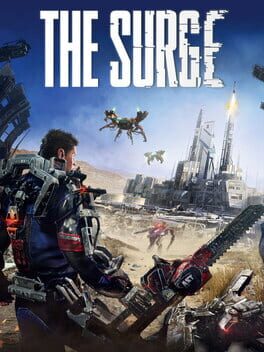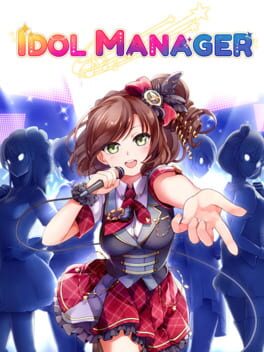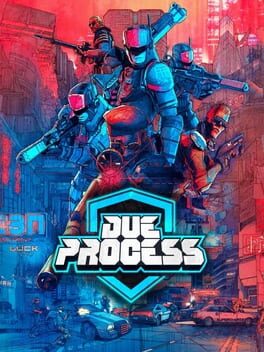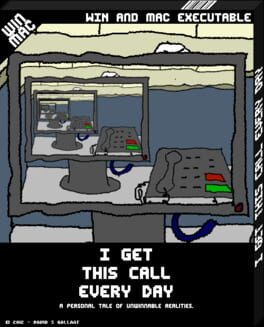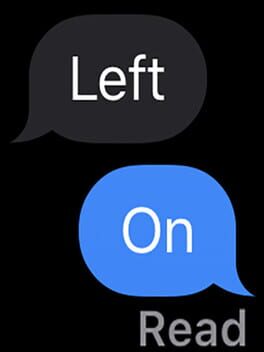jobosno
BACKER
2021
Initial impressions look a lot like a game that allows for skill expression through simple mechanics, but the reality of it is that the rigidity of its systems makes it tough to play. Offense players with one of the normal (non-powerup) balls can alter the timing of a throw, but in a 1v1 it'll be pretty hard to trip up a skilled defensive player. Teamwork is important primarily because defense is so easy, meaning that you'll need a teammate doing something to prevent tackle-spamming or making an easy catch (the timing window is fairly generous). This game has/had potential, but without some tweaking of timing windows, new mechanics, or new interactions with existing mechanics, I think people may tire of this one fairly quickly.
If this shift in the series is a result of Unity and Syndicate underperforming commercially, then I'm glad they failed. This shift towards an RPG format seems to have prompted Ubisoft to start investing some time into their characters as well, and it's paid off with the most interesting main character since Ezio.
Assassin's Creed has always excelled at creating incredible open worlds that make me take an interest in the history of a place I didn't previously care about. They've managed to do it again here, but Bayek carries this fucking game on his shoulders. A story beginning with a parent losing a child has a chance to fall really flat with players who can't relate, but it's written extremely well and it makes Bayek feel far more human than earlier AC protags, who feel much closer to superheroes than anything else.
The writing does a lot of the work, but Abubakar Salim puts in an excellent performance here to bring Bayek to life - it's a combination of the two that makes it believable. You understand what his values are without needing to be beaten over the head, and you can see through his interactions with children when he's reminded of his own son, without needing some hallucination or flashback to spell it out. Bayek very often feels like a man held together by ideals and duct tape and that's what sucks me in.
I know a lot of people were turned off by the shift towards RPG-lite mechanics and to be honest, they're alright here, but they're definitely half-baked in comparison to Odyssey. There are times where the difficulty between missions spikes a little too much and it feels like you're meant to level grind since these are sudden jumps, as opposed to a slow-growing gap between player level and mission level. The system of having multiple bows is a little weird and feels kinda clunky at times, and I basically just ignored one of them for about half the playthrough.
Moving away from paired animations makes the combat feel exhilarating at times, and the hitboxes match up pretty well to what's going on on-screen (I don't know how they fucked this up so bad in Valhalla after getting it right two games in a row). Aside from the sections where it feels like you're meant to level grind, the combat is generally challenging without feeling unfair and watching the Phylakes turn from a genuine roaming threat into juicy sacks of loot is a satisfying change.
All in all, Ubisoft very clearly put work into this game and the result isn't perfect, but they made some pretty dramatic changes to their flagship franchise and managed to create something worthwhile. Some of the changes that I think worked well for Origins don't work so well for later games (looting tombs was neat for Egypt and not so cool in Ancient England), but I'm really happy that Ubisoft decided to try something new when they could have just raked in the cash by shitting out another AC game that was 5% different from the last one. I think some of the things I liked most about Origins won't return to the series for a while, so I'll let the rest of you enjoy the newer games as they hone this formula - Origins is my own personal flash in the pan.
Assassin's Creed has always excelled at creating incredible open worlds that make me take an interest in the history of a place I didn't previously care about. They've managed to do it again here, but Bayek carries this fucking game on his shoulders. A story beginning with a parent losing a child has a chance to fall really flat with players who can't relate, but it's written extremely well and it makes Bayek feel far more human than earlier AC protags, who feel much closer to superheroes than anything else.
The writing does a lot of the work, but Abubakar Salim puts in an excellent performance here to bring Bayek to life - it's a combination of the two that makes it believable. You understand what his values are without needing to be beaten over the head, and you can see through his interactions with children when he's reminded of his own son, without needing some hallucination or flashback to spell it out. Bayek very often feels like a man held together by ideals and duct tape and that's what sucks me in.
I know a lot of people were turned off by the shift towards RPG-lite mechanics and to be honest, they're alright here, but they're definitely half-baked in comparison to Odyssey. There are times where the difficulty between missions spikes a little too much and it feels like you're meant to level grind since these are sudden jumps, as opposed to a slow-growing gap between player level and mission level. The system of having multiple bows is a little weird and feels kinda clunky at times, and I basically just ignored one of them for about half the playthrough.
Moving away from paired animations makes the combat feel exhilarating at times, and the hitboxes match up pretty well to what's going on on-screen (I don't know how they fucked this up so bad in Valhalla after getting it right two games in a row). Aside from the sections where it feels like you're meant to level grind, the combat is generally challenging without feeling unfair and watching the Phylakes turn from a genuine roaming threat into juicy sacks of loot is a satisfying change.
All in all, Ubisoft very clearly put work into this game and the result isn't perfect, but they made some pretty dramatic changes to their flagship franchise and managed to create something worthwhile. Some of the changes that I think worked well for Origins don't work so well for later games (looting tombs was neat for Egypt and not so cool in Ancient England), but I'm really happy that Ubisoft decided to try something new when they could have just raked in the cash by shitting out another AC game that was 5% different from the last one. I think some of the things I liked most about Origins won't return to the series for a while, so I'll let the rest of you enjoy the newer games as they hone this formula - Origins is my own personal flash in the pan.
2016
I think a lot of the reception to this game is from the sheer weight of expectations - many fans came in expecting more of the same mechanics and story beats that FromSoft clearly isn’t interested in anymore, and others still came in expecting something new and fresh that would justify its existence as a whole new game in the Dark Souls series. FromSoft seems to have done a lot more for the first group than they did for the second, but they’re still close enough to straddling the line for both to have some significant complaints. Compared to DS1, the path to a boss feels much more like a gauntlet that you just have to get through, instead of needing to respect each room for providing its own threat. The bosses definitely got more attention - they still feel like Dark Souls bosses, but the (over)abundance of multi-phase bosses makes it feel like this is really where the challenge was supposed to lie this time around.
The combat is definitely faster than previous entries and while I know a lot of those who played Bloodborne felt the speed wasn’t suited to this game, I never really felt that there was a problem with it. The increased speed of the bosses makes me actually feel like I have to pay constant attention to the bosses since they’re able to keep the pressure on at all times, instead of getting little reprieves here and there as you get some space between you. This seems to mostly come down to personal preference, but there’s a lot here that works in favor of the increased speed, including the decision to actually let you move around (at a much faster speed) while using your Estus Flasks - that teensy bit of movement rarely makes a difference between life and death, but it does factor a little bit into your calculus of when healing feels safe.
What I respect DS3 the most for is its world. I’ve seen a lot of complaints about hollow fanservice and while some callbacks fit better than others, I think From has done a good job of integrating the old items, locations, etc into the story. Dark Souls 3, better than any other entry, really sells that the world is crumbling. Part of it is the callbacks, showing you things you’ve seen before and realizing that I just walked right through old Firelink and I didn’t even recognize it. Part of it is that the story feels tired right off the bat - not in that it’s trite, but in that from the second your character stands up at the beginning of the game, there’s a sense that everything around you has already been there for uncountable years, and that if it were to blink out of existence tomorrow it would only make sense. While this sensation of the game “playing the hits” seems to have turned many off from the game, it feels like the perfect encapsulation of the games themes about unnaturally prolonging a natural cycle - the hollow imitations of characters, institutions, and ideas from previous games feel like the world and its inhabitants holding it all together the only way they know how - by grasping at the past, taking these legendary figures and concepts and only being able to produce a shallow facsimile.
It makes me feel as if I’m seeing a different game from the others. Don’t get me wrong, you don’t have to enjoy this game just because I enjoy it. But I wonder if people who suggest the game doesn’t know what it’s doing with these callbacks were so blinded by this recognition of previous locations that they missed obvious markers all over the game. Linking the fire produces a pathetic, withering flame instead of the overwhelming explosion that we saw in DS1. The game retreading a location you already saw in the same game by bringing out a version of the Cemetery of Ash where everything is just...wrong. Showing you a half-eaten Gwyndolin, dodging modified versions of his own abilities, playing a corrupted version of his theme. While it’s all an excellent continuation of themes present in the games, it feels like the game itself is showing you what happens to everything with time, including the games you’re playing - do you unnaturally prolong the series against its will until it’s just a parody of its old self, or do you let it die with dignity and be replaced by new, unknown things?
I don’t want another Dark Souls game. I like that the game chose to play us a few of the songs we already knew on the way out, that it still managed to give us a new-ish take on the same formula, and that it’s bowing out before becoming a mangled mess, exhausting anything interesting the IP had to offer. It is, to me, the perfect way to cap off this particular series, and I respect FromSoft immensely for doing it with dignity - before they had dispelled the mysteries of the world, before becoming a no-rough-edges yearly fixture, before anyone can figure out how multiplayer really works.
The combat is definitely faster than previous entries and while I know a lot of those who played Bloodborne felt the speed wasn’t suited to this game, I never really felt that there was a problem with it. The increased speed of the bosses makes me actually feel like I have to pay constant attention to the bosses since they’re able to keep the pressure on at all times, instead of getting little reprieves here and there as you get some space between you. This seems to mostly come down to personal preference, but there’s a lot here that works in favor of the increased speed, including the decision to actually let you move around (at a much faster speed) while using your Estus Flasks - that teensy bit of movement rarely makes a difference between life and death, but it does factor a little bit into your calculus of when healing feels safe.
What I respect DS3 the most for is its world. I’ve seen a lot of complaints about hollow fanservice and while some callbacks fit better than others, I think From has done a good job of integrating the old items, locations, etc into the story. Dark Souls 3, better than any other entry, really sells that the world is crumbling. Part of it is the callbacks, showing you things you’ve seen before and realizing that I just walked right through old Firelink and I didn’t even recognize it. Part of it is that the story feels tired right off the bat - not in that it’s trite, but in that from the second your character stands up at the beginning of the game, there’s a sense that everything around you has already been there for uncountable years, and that if it were to blink out of existence tomorrow it would only make sense. While this sensation of the game “playing the hits” seems to have turned many off from the game, it feels like the perfect encapsulation of the games themes about unnaturally prolonging a natural cycle - the hollow imitations of characters, institutions, and ideas from previous games feel like the world and its inhabitants holding it all together the only way they know how - by grasping at the past, taking these legendary figures and concepts and only being able to produce a shallow facsimile.
It makes me feel as if I’m seeing a different game from the others. Don’t get me wrong, you don’t have to enjoy this game just because I enjoy it. But I wonder if people who suggest the game doesn’t know what it’s doing with these callbacks were so blinded by this recognition of previous locations that they missed obvious markers all over the game. Linking the fire produces a pathetic, withering flame instead of the overwhelming explosion that we saw in DS1. The game retreading a location you already saw in the same game by bringing out a version of the Cemetery of Ash where everything is just...wrong. Showing you a half-eaten Gwyndolin, dodging modified versions of his own abilities, playing a corrupted version of his theme. While it’s all an excellent continuation of themes present in the games, it feels like the game itself is showing you what happens to everything with time, including the games you’re playing - do you unnaturally prolong the series against its will until it’s just a parody of its old self, or do you let it die with dignity and be replaced by new, unknown things?
I don’t want another Dark Souls game. I like that the game chose to play us a few of the songs we already knew on the way out, that it still managed to give us a new-ish take on the same formula, and that it’s bowing out before becoming a mangled mess, exhausting anything interesting the IP had to offer. It is, to me, the perfect way to cap off this particular series, and I respect FromSoft immensely for doing it with dignity - before they had dispelled the mysteries of the world, before becoming a no-rough-edges yearly fixture, before anyone can figure out how multiplayer really works.
2021
2019
Deserves a lot better than to be called a "joke game" as the devs very clearly put in some effort to make this a game that's actually enjoyable to play. It's not bad (despite making me want to play Sayonara Wild Hearts instead) but despite being consistently engaging, it's never really fully fun. It starts off a little too slow - I can imagine a lot of people dropping this before all the mechanics have been fully revealed. The controls are a little too stiff for my liking. The music carries about half the experience - the tracks are all good, but most of them don't really fit the atmosphere of the game very well. There are a couple tracks here that sound like they would fit into the original OutRun soundtrack and those are by far the best fit - they're still funky enough to fit into this game's overall aesthetic but upbeat enough to fit the pace of everything that's going on on-screen.
All in all it's a solid game, but I wouldn't encourage anyone to go out of their way to pick this one up. If you're just looking for a chill game that plays like an endless runner then this should be your cup of tea - grab it while it's on sale.
All in all it's a solid game, but I wouldn't encourage anyone to go out of their way to pick this one up. If you're just looking for a chill game that plays like an endless runner then this should be your cup of tea - grab it while it's on sale.
2018
This is such a convincing depiction of confused teens & young adults trying to figure themselves out that it feels... viscerally real at times. Sitting there, biting your nails waiting for them to finish typing. Holding two conversations simultaneously, waiting for the drama from the first conversation to somehow spill over into the second conversation. Trying to convince your parents that yes, the people you've met online are genuine friends and no, you're not giving out the family address. I've never been too involved in fandom spaces and have never written fanfic in my life, but I held my breath as Alex was waiting for feedback on hers.
Admittedly, a large part of this is presentation - the dialogue choices are mostly there to give you your choice of emote flair on a preset message and thus aren't really significant choices, save for a few occasions. The narrative can be a little clunky and for people who didn't spend time on the internet pre-2008 I imagine the writing could come off as too "quirky", but it's such an emotionally honest game that I'm willing to forgive an occasional plot contrivance. I may be lucky enough to feel like I was assigned the right gender when I was born, but it doesn't mean that this story is at all unfamiliar - my friends and I too caught up in our own heads, fucking up in our efforts to be there for a friend while wanting to vent our own thoughts. And it's because I remember the experience that the presentation does so much to sell the story here - when I was this age I was also staring at some austere chat client, trying to figure out how to respond to a dear friend when literally all I can come up with is a crude translation of my teenage brain just fucking screaming.
Recommended for anyone who spent their formative years on Yahoo Messenger.
Admittedly, a large part of this is presentation - the dialogue choices are mostly there to give you your choice of emote flair on a preset message and thus aren't really significant choices, save for a few occasions. The narrative can be a little clunky and for people who didn't spend time on the internet pre-2008 I imagine the writing could come off as too "quirky", but it's such an emotionally honest game that I'm willing to forgive an occasional plot contrivance. I may be lucky enough to feel like I was assigned the right gender when I was born, but it doesn't mean that this story is at all unfamiliar - my friends and I too caught up in our own heads, fucking up in our efforts to be there for a friend while wanting to vent our own thoughts. And it's because I remember the experience that the presentation does so much to sell the story here - when I was this age I was also staring at some austere chat client, trying to figure out how to respond to a dear friend when literally all I can come up with is a crude translation of my teenage brain just fucking screaming.
Recommended for anyone who spent their formative years on Yahoo Messenger.
2000
Given that the character select screen in Melty Blood alone is full of late-arrival spoilers, I don’t make special effort to avoid spoilers in this review. No plot events have been mentioned, but if you’re especially spoiler-sensitive you may want to avoid this. If you’ve somehow stumbled upon this page wondering if you should play this game, I do recommend it, with the caveat that there is a LOT of sexual violence in this game. It’s not a factor in every part of the story, but it’s still featured prominently in both the lore and the foreground of a few scenes.
It’s been six weeks since I finished the last route of Tsukihime at this point. I had originally contented myself with throwing down some lazy notes as I completed each route, slowly amounting to a large wall of text without many of the qualities of a real review. At this point, though, I’ve realized that I’ve not stopped thinking about this game for a month and a half - any piece of media that can do this deserves a better, more thought-out review.
The first thing I feel that I should mention is that it’s an incredibly... rough game, in a number of ways. I’ve already mentioned the sexual violence in my disclaimer at the beginning, but even with a strong stomach for this kind of thing there were a couple times where I found myself actually physically cringing at the text on my screen. The dialogue is sometimes laughably weak (god help you during the H-scenes) and the art itself can also be… strange. Nrvnqsr is an unsettling presence in the VN for his incredibly long neck long before he gets to directly participate in the story.
Despite all this, it manages to shine rather brightly through strong character writing and excellent usage of the enforced route order to execute layered reveals. It takes a lot of skill to keep new plot twists coming after 4 playthroughs and 25 hours without feeling contrived, but they do pull it off. In the early routes these tend to be delivered in the form of one of the heroines sitting down to have a thirty minute info-dump conversation with Shiki, but as the game progresses the new reveals flow better with the story and can even be rather subtle. I know it doesn't sound like I'm setting a terribly high bar here, but the late plot twists are rewarding to discover as they feel logical (by the standards of the universe) and have sufficient build-up.
Tsukihime’s characters are the real draw. There’s a reason half the reviewers here have profile photos from the game. While trope-y writing weighs some of them down pretty heavily (I’m sorry, but Akiha never progressed beyond “real doujin hours”), the saving grace here is that each character is given real agency within the story, even if they fail to make full use of it. This is why I found the Far Side routes to be much more enjoyable overall - with most of the background lore about this world out of the way and a focus on life within the Tohno mansion, there’s a lot more room to drive at what makes each of the players here special. Some of the supernatural stuff is still tiring, with SHIKI and Yumizuka becoming especially grating presences, but being able to ignore “True Ancestors” and “Dead Apostles” in favor of stories about festering resentment and familial guilt is a real blessing.
A lot of Tsukihime’s biggest flaws crop up whenever sex is involved. I maintain that it would benefit tremendously from not being an eroge, as working the H-scenes into each route has a tendency to weaken them overall. When the buildup is fine, there’s still no guarantee that the scene itself will be any good - between the music, the premise, the writing, and the fact that it was apparently deserving of a “Fridge Brilliance” entry on TV Tropes, the mere thought of the Ciel H-scene is enough to make me laugh every time. The game falls back on lust to show that Shiki “isn’t thinking clearly” and while nothing usually comes of it (even the H-scenes are typically portrayed as romantic affairs) it doesn’t stop this from being gross when it comes up. I’ve seen Kara no Kyoukai, I know what Nasu can do when he doesn't have to shoehorn in some fanservice.
Even with its flaws, Tsukihime is one of the most captivating visual novels I’ve read. It is amateurish in many ways. Its characters are both tropey and fleshed-out, its world is simultaneously cozy and unsettling. I think the best parts of the game are contained almost entirely in the back half, after you’ve already played it at least twice - and I think it’s the experience of having read through four versions of this story that makes the fifth so rewarding. While the “land of contrasts” is pretty lazy media criticism, with Tsukihime I do sincerely believe that it is because it is so frequently clumsy that the standout moments are so much more interesting.
It’s been six weeks since I finished the last route of Tsukihime at this point. I had originally contented myself with throwing down some lazy notes as I completed each route, slowly amounting to a large wall of text without many of the qualities of a real review. At this point, though, I’ve realized that I’ve not stopped thinking about this game for a month and a half - any piece of media that can do this deserves a better, more thought-out review.
The first thing I feel that I should mention is that it’s an incredibly... rough game, in a number of ways. I’ve already mentioned the sexual violence in my disclaimer at the beginning, but even with a strong stomach for this kind of thing there were a couple times where I found myself actually physically cringing at the text on my screen. The dialogue is sometimes laughably weak (god help you during the H-scenes) and the art itself can also be… strange. Nrvnqsr is an unsettling presence in the VN for his incredibly long neck long before he gets to directly participate in the story.
Despite all this, it manages to shine rather brightly through strong character writing and excellent usage of the enforced route order to execute layered reveals. It takes a lot of skill to keep new plot twists coming after 4 playthroughs and 25 hours without feeling contrived, but they do pull it off. In the early routes these tend to be delivered in the form of one of the heroines sitting down to have a thirty minute info-dump conversation with Shiki, but as the game progresses the new reveals flow better with the story and can even be rather subtle. I know it doesn't sound like I'm setting a terribly high bar here, but the late plot twists are rewarding to discover as they feel logical (by the standards of the universe) and have sufficient build-up.
Tsukihime’s characters are the real draw. There’s a reason half the reviewers here have profile photos from the game. While trope-y writing weighs some of them down pretty heavily (I’m sorry, but Akiha never progressed beyond “real doujin hours”), the saving grace here is that each character is given real agency within the story, even if they fail to make full use of it. This is why I found the Far Side routes to be much more enjoyable overall - with most of the background lore about this world out of the way and a focus on life within the Tohno mansion, there’s a lot more room to drive at what makes each of the players here special. Some of the supernatural stuff is still tiring, with SHIKI and Yumizuka becoming especially grating presences, but being able to ignore “True Ancestors” and “Dead Apostles” in favor of stories about festering resentment and familial guilt is a real blessing.
A lot of Tsukihime’s biggest flaws crop up whenever sex is involved. I maintain that it would benefit tremendously from not being an eroge, as working the H-scenes into each route has a tendency to weaken them overall. When the buildup is fine, there’s still no guarantee that the scene itself will be any good - between the music, the premise, the writing, and the fact that it was apparently deserving of a “Fridge Brilliance” entry on TV Tropes, the mere thought of the Ciel H-scene is enough to make me laugh every time. The game falls back on lust to show that Shiki “isn’t thinking clearly” and while nothing usually comes of it (even the H-scenes are typically portrayed as romantic affairs) it doesn’t stop this from being gross when it comes up. I’ve seen Kara no Kyoukai, I know what Nasu can do when he doesn't have to shoehorn in some fanservice.
Even with its flaws, Tsukihime is one of the most captivating visual novels I’ve read. It is amateurish in many ways. Its characters are both tropey and fleshed-out, its world is simultaneously cozy and unsettling. I think the best parts of the game are contained almost entirely in the back half, after you’ve already played it at least twice - and I think it’s the experience of having read through four versions of this story that makes the fifth so rewarding. While the “land of contrasts” is pretty lazy media criticism, with Tsukihime I do sincerely believe that it is because it is so frequently clumsy that the standout moments are so much more interesting.
Whoever is making the DLCs for the Watch Dogs series needs to be given control of the main games. Don't get me wrong, it's not perfect - it's still built on the frame of the base game, meaning the mission structure is mostly the same, it's still largely repetitive and slightly too easy. But the things this DLC does right are fascinating to me, because it feels like it's getting closer to the place Watch Dogs wanted to be when it all started - a focus on how ordinary citizens are affected by the actions of society's bigger players.
Aiden Pearce is still far from being a fun-loving guy, but watching him try to reckon with how his actions have affected his now-adult nephew Jackson is compelling, human drama. Jackson is the one who introduces Aiden to the questgivers in the DLC, and together they paint a much different picture of what "resistance" can look like. With a single protagonist (well, two) to focus this DLC around, the contrast between Aiden's gunslinging and the compassionate mutual aid focus of the questgivers is especially prominent.
The result here is a story that cares much more for its characters and the connections they make than anything in the base game, a work that is supposedly all about random people coming together. Every mission feels like a lesson for Aiden or Wrench about the value in connecting with other people and learning to help others in a way that doesnt involve murder. It's not flawless - the presence of the black market dealer is an especially strange inclusion - but I was surprised at the way in which this DLC seems genuinely compassionate at times in a way I didn't expect from a Ubisoft game. If they were willing to be a little more brave and decouple this story about the consequences violent vigilantism can have from the gameplay about how fun violent vigilantism can be, there's a possibility we could've had something special. That's asking for a lot, though, and I think asking Ubisoft for a game without combat that isn't explicitly made for kids may as well be a pipe dream.
I'm looking forward to finishing this (it's a lengthy one) and I'm hoping I don't have to come back and revise this due to the story shooting itself in the foot. I would love for this to be a send-off for Aiden (and for Wrench, who has concerned voicemails from Marcus about the fact that Wrench is putting himself at risk again). But I'm afraid that Ubisoft's status as a AAA developer will result in them clinging to these series mascots instead of giving them a graceful, dignified exit that they probably don't deserve.
Aiden Pearce is still far from being a fun-loving guy, but watching him try to reckon with how his actions have affected his now-adult nephew Jackson is compelling, human drama. Jackson is the one who introduces Aiden to the questgivers in the DLC, and together they paint a much different picture of what "resistance" can look like. With a single protagonist (well, two) to focus this DLC around, the contrast between Aiden's gunslinging and the compassionate mutual aid focus of the questgivers is especially prominent.
The result here is a story that cares much more for its characters and the connections they make than anything in the base game, a work that is supposedly all about random people coming together. Every mission feels like a lesson for Aiden or Wrench about the value in connecting with other people and learning to help others in a way that doesnt involve murder. It's not flawless - the presence of the black market dealer is an especially strange inclusion - but I was surprised at the way in which this DLC seems genuinely compassionate at times in a way I didn't expect from a Ubisoft game. If they were willing to be a little more brave and decouple this story about the consequences violent vigilantism can have from the gameplay about how fun violent vigilantism can be, there's a possibility we could've had something special. That's asking for a lot, though, and I think asking Ubisoft for a game without combat that isn't explicitly made for kids may as well be a pipe dream.
I'm looking forward to finishing this (it's a lengthy one) and I'm hoping I don't have to come back and revise this due to the story shooting itself in the foot. I would love for this to be a send-off for Aiden (and for Wrench, who has concerned voicemails from Marcus about the fact that Wrench is putting himself at risk again). But I'm afraid that Ubisoft's status as a AAA developer will result in them clinging to these series mascots instead of giving them a graceful, dignified exit that they probably don't deserve.
A fun rhythm game that's got a lot of charm in both gameplay and presentation. I have a few gameplay related gripes in that the camera and some of the VFX make it hard to sight-read some of the tracks when you're first getting the hang of things, but it feels responsive and satisfying to hit the notes. I'm not great at determining whether things are charted well, but I can tell what I'm meant to be following in each song (which means it's better than the average osu! track).
The writing in the little vignettes we get is a little much, but I do feel like this is a silly complaint to level at a demo and I still generally like the fact that there's a story attached to each song.
Unreasonably good for a demo-slash-side story with a good variety of songs too, definitely check it out if you're interested in rhythm games.
The writing in the little vignettes we get is a little much, but I do feel like this is a silly complaint to level at a demo and I still generally like the fact that there's a story attached to each song.
Unreasonably good for a demo-slash-side story with a good variety of songs too, definitely check it out if you're interested in rhythm games.
2018
It's alright. It's almost criminally easy on a controller unless you're playing on Master difficulty, given that I had FC'd 9-10 songs before even unlocking half of them (despite playing on Hard and not being the best rhythm game player).
It's got a pretty large library, which you're going to need given how much you'll have to grind if you actually care about unlocking anything. There's a Steam guide out there that suggests you can unlock all the characters within 7-8 hours if you have the XP boost from the DLC and the specific character that also boosts XP. Of course, 7-8 hours in a rhythm game feels like 40-50 in any other, and that's with the XP boosts.
There's a lot of little personal turn-offs - I don't really like the aesthetic and the music is really, really bad at times. It feels wrong to knock too many points off for these but given how simple it is mechanically, it really feels like you're meant to buy into the style and it's just... not for me.
It's got a pretty large library, which you're going to need given how much you'll have to grind if you actually care about unlocking anything. There's a Steam guide out there that suggests you can unlock all the characters within 7-8 hours if you have the XP boost from the DLC and the specific character that also boosts XP. Of course, 7-8 hours in a rhythm game feels like 40-50 in any other, and that's with the XP boosts.
There's a lot of little personal turn-offs - I don't really like the aesthetic and the music is really, really bad at times. It feels wrong to knock too many points off for these but given how simple it is mechanically, it really feels like you're meant to buy into the style and it's just... not for me.
2017
2021
The thing that piques my interest with Idol Manager is that the developers seem to have a genuine interest in painting the idol industry as something that brings joy to a lot of people, but has a number of less glamorous elements to it - the exploitation, the scandals (and non-scandals), the fact that a lot of these idols are still just kids and bullying is a real thing that you will need to address. There is a surprising amount of work that you and your staff will have to do, split between doing things that are financially rewarding and things that you need to maintain the wellbeing of your idols. Given that you as a producer/manager need to touch everything that goes out the door in some form or fashion, you really begin to feel stretched thin as you are increasingly unable to maintain a personal relationship with each one of your idols. This becomes a complaint of mine as it means as your operation grows in scale you will have several things being held up while you personally put the finishing touches on every project, but it also makes for some of the most effective moments in the game when you realize you’ve been lost in handling business, haven’t paid much attention to your idols lately, only to get the pop-up that one of them is having a birthday that she’s spending alone in the break room.
These small moments of drama are obviously intentional or the game wouldn’t bother showing you the specific girls at a birthday party, or who is using the break room (and how) during the course of a normal day. While the focus on the joy the idols bring makes sense and makes moments like the one above more impactful through juxtaposition, there are a few elements of the game that detract from the experience due to a conflict in tone. The scandals are the most notable example of this, often referencing real life incidents - there are events referencing Japanese VTubers saying the N word while playing GTA V, and some events that might be references but are already so ridiculous as an inclusion to this game that I have to wonder why they decided this was appropriate.
Perhaps the most bizarre inclusion to me, though, is the inclusion of a whole visual novel-style dating subplot that you access by flirting with one of your idols (only possible if they’re over 18). The game seems to be of two minds about this, given how often it reminds you that dating an idol is a bad idea for a number of reasons, not the least of which is that you’re their employer. However, there’s still a LOT of writing dedicated to dating an idol (most of which is your employee GF coming up with absurdly profound small talk) up to and including marriage, where the game forces one of you to leave the company and gives you a random Fallout-style slideshow ending that tells you all about life after marriage. If you pursue this route and the idol quits the company instead of you, the game continues on as if nothing happened, save for (hilariously) replacing the enormous “Flirt” button with an enormous button that now reads “You are faithful to your wife”.
It frequently stumbles, but the game is still engaging, and if you’re trying to be successful you’ll always have enough plates spinning at once that it’s hard to find a clear stopping point. While there’s always a lot that needs done and there’s never really a big single moment of triumph, the fun comes from sitting back and realizing that you have successfully turned a handful of recruits into genuine stars, and almost being proud as the ones who have been there the longest decide its time to graduate and move on to better things. There’s not enough at play here to be a proper tycoon game, but as a blend between tycoon games, visual novels, and like… a particularly intense clicker/idle game, it works well enough that I don’t regret spending 20 bucks on it, but I don’t know if I’d go out of my way to recommend it to anyone.
These small moments of drama are obviously intentional or the game wouldn’t bother showing you the specific girls at a birthday party, or who is using the break room (and how) during the course of a normal day. While the focus on the joy the idols bring makes sense and makes moments like the one above more impactful through juxtaposition, there are a few elements of the game that detract from the experience due to a conflict in tone. The scandals are the most notable example of this, often referencing real life incidents - there are events referencing Japanese VTubers saying the N word while playing GTA V, and some events that might be references but are already so ridiculous as an inclusion to this game that I have to wonder why they decided this was appropriate.
Perhaps the most bizarre inclusion to me, though, is the inclusion of a whole visual novel-style dating subplot that you access by flirting with one of your idols (only possible if they’re over 18). The game seems to be of two minds about this, given how often it reminds you that dating an idol is a bad idea for a number of reasons, not the least of which is that you’re their employer. However, there’s still a LOT of writing dedicated to dating an idol (most of which is your employee GF coming up with absurdly profound small talk) up to and including marriage, where the game forces one of you to leave the company and gives you a random Fallout-style slideshow ending that tells you all about life after marriage. If you pursue this route and the idol quits the company instead of you, the game continues on as if nothing happened, save for (hilariously) replacing the enormous “Flirt” button with an enormous button that now reads “You are faithful to your wife”.
It frequently stumbles, but the game is still engaging, and if you’re trying to be successful you’ll always have enough plates spinning at once that it’s hard to find a clear stopping point. While there’s always a lot that needs done and there’s never really a big single moment of triumph, the fun comes from sitting back and realizing that you have successfully turned a handful of recruits into genuine stars, and almost being proud as the ones who have been there the longest decide its time to graduate and move on to better things. There’s not enough at play here to be a proper tycoon game, but as a blend between tycoon games, visual novels, and like… a particularly intense clicker/idle game, it works well enough that I don’t regret spending 20 bucks on it, but I don’t know if I’d go out of my way to recommend it to anyone.
2020
With hand-crafted maps I would probably have a lot more positive things to say about the game, but with the randomly generated maps they all lack character as a setting and are therefore harder than you might expect to memorize.
The way I've described this to friends is that everything feels 15% off. The scale of the maps feels distorted in a different way from room to room, the prep time feels 15% too short and the round time feels 15% too long. These are little things that can easily change (the game's still in early access), but I think the main thing souring the game at this point ties into the prep time complaint - players at this point just don't know how to coordinate with the limited time they have. The fact that you've got to stock up and share materials at the beginning of every round suggests that you're meant to come up with these careful strategies, but you're not given a lot of time to coordinate with 5 internet strangers what the plan is before the action happens. Perhaps this will get better as the game approaches a full release and people begin to develop a more coherent meta, but I've played a lot of Counter-Strike, man, I know that even if you're all on the same page it takes like 15 seconds minimum so that everyone knows to rush A Long.
I think the way materials are shared/stolen is pretty cool and something I wish more games would do, but I think a little more work needs to be done to make sure all the parts fit together nicely. If they stick with the randomly generated maps I think that'll continue to be a downside, so I hope they're not married to that decision going forward, because that - to me - isn't what makes this game unique.
All things considered, I'm interested in where this goes. I think it is, in a word, "neat", but I'm probably not going to revisit it until it's either released or about to be - that way I can gauge what direction this game goes in the end. We'll see if it gets a popularity spike as that date approaches, too, since I'd argue it deserves one. I shit on the randomly generated maps but I think the game has an interesting visual identity and could really develop into something special with the right changes.
The way I've described this to friends is that everything feels 15% off. The scale of the maps feels distorted in a different way from room to room, the prep time feels 15% too short and the round time feels 15% too long. These are little things that can easily change (the game's still in early access), but I think the main thing souring the game at this point ties into the prep time complaint - players at this point just don't know how to coordinate with the limited time they have. The fact that you've got to stock up and share materials at the beginning of every round suggests that you're meant to come up with these careful strategies, but you're not given a lot of time to coordinate with 5 internet strangers what the plan is before the action happens. Perhaps this will get better as the game approaches a full release and people begin to develop a more coherent meta, but I've played a lot of Counter-Strike, man, I know that even if you're all on the same page it takes like 15 seconds minimum so that everyone knows to rush A Long.
I think the way materials are shared/stolen is pretty cool and something I wish more games would do, but I think a little more work needs to be done to make sure all the parts fit together nicely. If they stick with the randomly generated maps I think that'll continue to be a downside, so I hope they're not married to that decision going forward, because that - to me - isn't what makes this game unique.
All things considered, I'm interested in where this goes. I think it is, in a word, "neat", but I'm probably not going to revisit it until it's either released or about to be - that way I can gauge what direction this game goes in the end. We'll see if it gets a popularity spike as that date approaches, too, since I'd argue it deserves one. I shit on the randomly generated maps but I think the game has an interesting visual identity and could really develop into something special with the right changes.
2020
i've never played a game where i have wanted so badly to torpedo a conversation just to get out of it. a remarkably realistic (read: unbearable) depiction of attempting to hold a text conversation with two of the worst conversationalists on the planet
if you didn't select the responses by platforming it would be even more obvious just how stiff and stilted this conversation actually is. it's a miracle either of these people decided to talk to the other after more than a week of this, because i was ready to tap out after 15 straight minutes of "just chillen, u?" In truth, the most wild detail of this story is that these bland conversations are apparently the noteworthy parts of this relationship over the course of several months.
if you didn't select the responses by platforming it would be even more obvious just how stiff and stilted this conversation actually is. it's a miracle either of these people decided to talk to the other after more than a week of this, because i was ready to tap out after 15 straight minutes of "just chillen, u?" In truth, the most wild detail of this story is that these bland conversations are apparently the noteworthy parts of this relationship over the course of several months.
